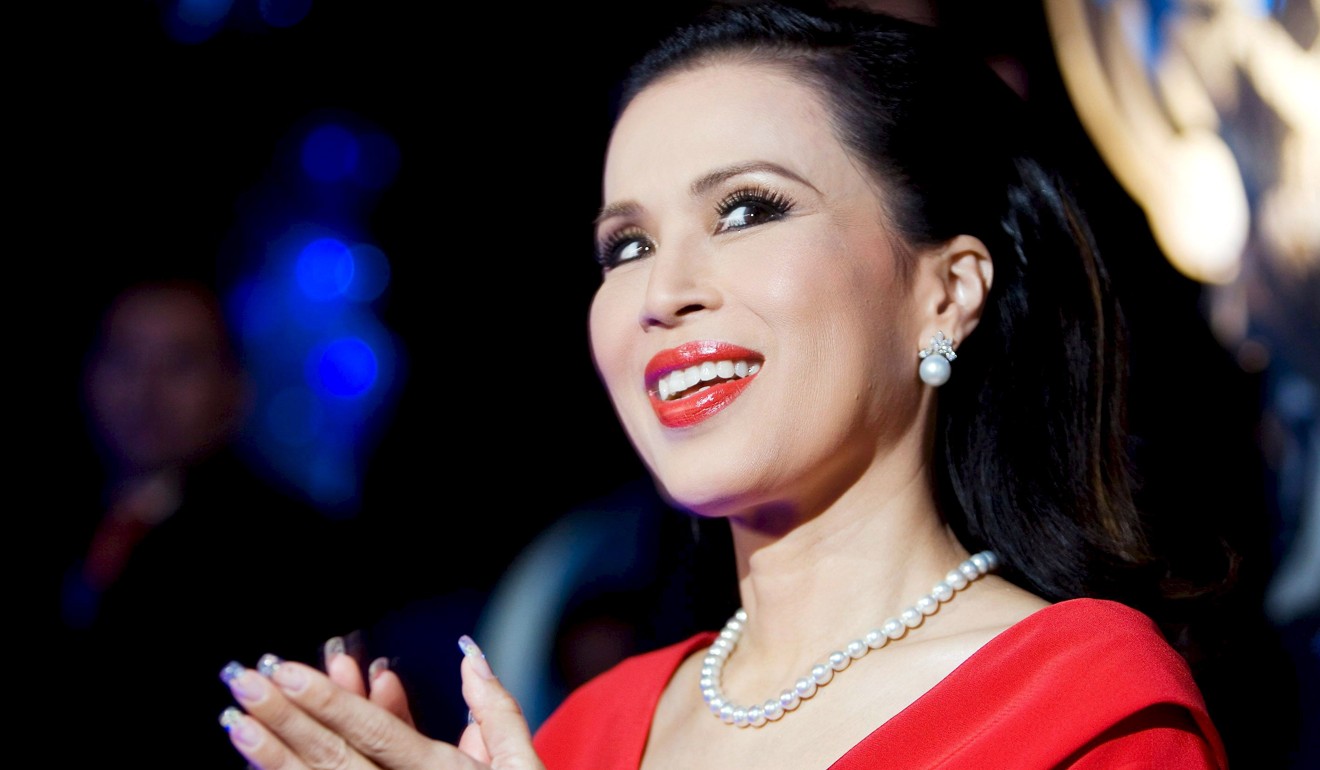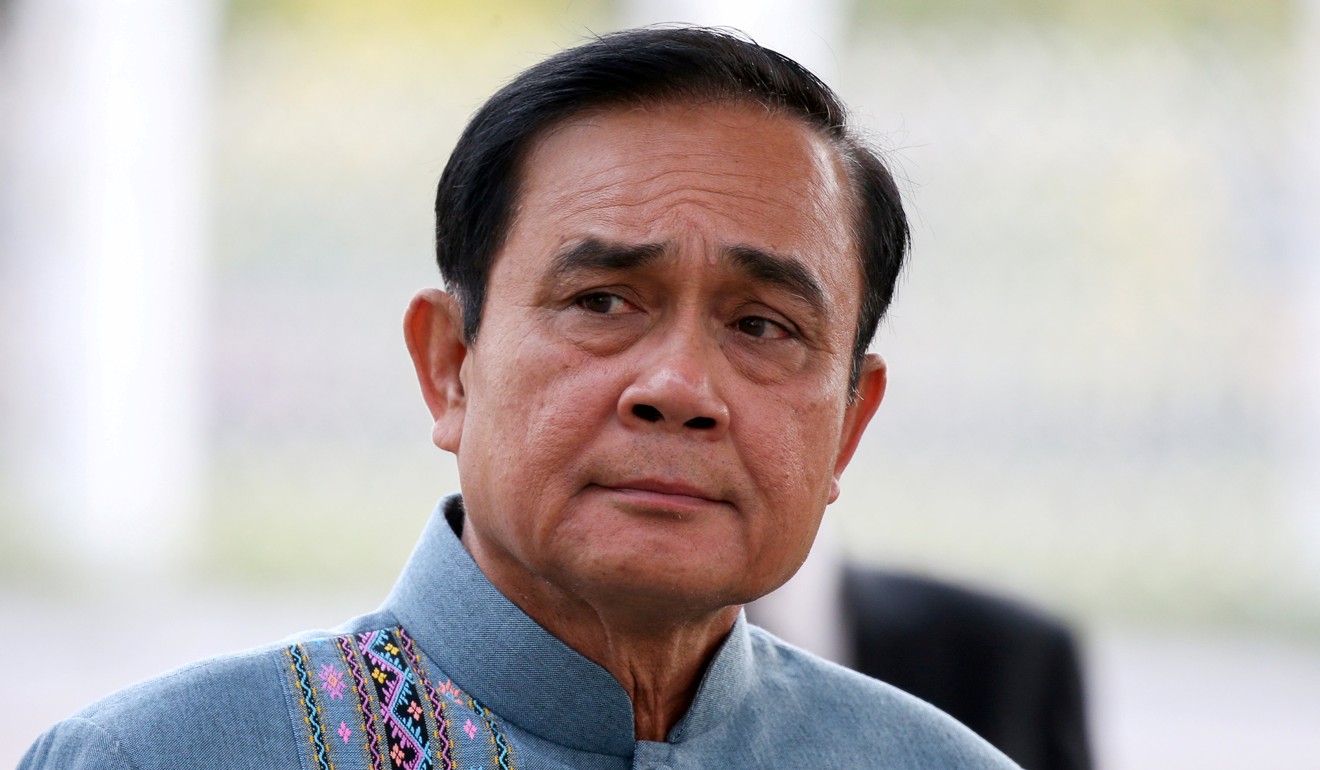
Election blow for Shinawatras as court dissolves Thai Raksa Chart party over Princess Ubolratana’s bid to be PM
- Thailand braces for violence as Constitutional Court disqualifies the party from contesting the general election on March 24
- The ruling strengthens the junta’s hand in first election since its coup in 2014
The nine-member court determined the party’s decision to nominate Princess Ubolratana Rajakanya, the elder sister of King Maha Vajiralongkorn, as its candidate for prime minister was an act “hostile to the constitutional monarchy”. On Instagram, the princess described the verdict as “sad and depressing”.
Authorities braced for a violent response to the ruling, deploying more than 1,000 policemen to guard the court as it reached its controversial verdict in front of 30 representatives of the party and members of the Election Commission.
In Thailand, will the Thai Raksa Chart party suffer the same fate as Princess Ubolratana’s bid for prime minister?
Thai Raksa Chart is not the biggest of the parties loyal to the Shinawatras, but many of the constituencies it was predicted to win may now support the bloc’s main rival, the Palang Pracharat party, which has nominated Prime Minister Prayuth Chan-ocha as its candidate for the top job.
older brother, Thaksin Shinawatra, was prime minister from 2001-06, before also being deposed by a coup. Nevertheless, the Shinawatras continue to wield significant influence in Thai politics and will now have to rely on their main political vehicle, the Pheu Thai party.

The court verdict does not prevent non-executive members from joining other political parties but they would still be unable to run in the election as they will not have been members for the required 90 days.
Thai Raksa Chart drew the court’s scrutiny following its decision a month ago to nominate Princess Ubolratana as its candidate for prime minister – an unprecedented development that sent shock waves through Thai politics.
“Thai Raksa Chart is deployed tactically to mop up party-list seats to complement Pheu Thai,” said Thitinan Pongsudhirak, a political scientist at Chulalongkorn University, before the ruling.
Thailand delays rice bill due to farmers’ objections. Will it open the door for the Shinawatras?
“It was plausible in view of the princess’s short-lived candidacy that the Thaksin-aligned parties even had a shot at a simple majority had her nomination not been nullified.”
The nomination initially seemed to meet the requirements of the 2017 constitution, which was drafted by the junta. Under this, candidates for prime minister do not need to be members of parliament.
However, her nomination earned a rebuke from the king, who said it was “highly inappropriate” and that royal family members must stay politically neutral. The princess, now 67, abandoned her royal title in the 1970s when she married the American Peter Jansen.

Thai Raksa Chart noted this in its defence, arguing the princess should no longer be subject to the conventions restricting royal involvement in Thai politics and should be regarded instead as a regular Thai citizen.
However, the Constitutional Court noted that upon the end of absolute monarchy in 1932, there had been an agreement between the palace and parliament that members of the royal family would not engage in politics.
The royal family does not vote, for example. Therefore, direct intervention, such as Princess Ubolratana’s candidacy, violated this principle and the monarchy’s neutrality, the court said.
Listen to the Asia Briefing podcast: Thai election analysis
Amnesty International criticised the verdict and urged the next government to undertake “deep reforms” to address alleged human rights violations under military rule.
“This decision highlights the Thai authorities’ abuse of judicial powers to restrict the peaceful association and expression of the political opposition,” said Katherine Gerson, Amnesty International’s Thailand campaigner. “This far-reaching measure raises strong concerns about the human rights to freedom of association and expression in the period leading to the elections.
“We call on the military government and all election candidates to commit to protecting these fundamental rights during the elections – and for the next government to undertake deep reforms to end the continued decline in human rights protections.
Forget the junta: does King Vajiralongkorn hold all the cards in Thai politics?
“Serious human rights violations have flourished in Thailand’s past decade of political instability, including these last four years of military rule. Sweeping and vaguely worded legal restrictions, including a ban on meetings of five or more persons for ‘political’ purposes, have facilitated a wide-ranging attack on political opponents and civil society.”
Paul Chambers, who lectures on international affairs at Thailand’s Naresuan University, said the ruling might lead to “disappointment” and even risked “delegitimising the election”. He also suggested, however, the ruling could prompt higher voter turnout and increased support for other parties.
Additional reporting by Reuters

